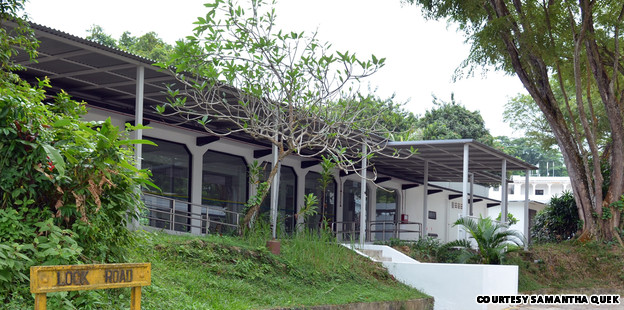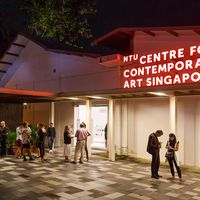Gillman Barracks | Singapore's newest contemporary art destination

The much anticipated Gillman Barracks opened in Singapore in September with the launch of 13 international galleries. With a series of public programme, talks, tours and showcases, Gillman Barracks is set to be Singapore's new contemporary art destination.
A colonial-era structure, the barracks has been transformed into a S$9.76 milion (US$8 million) hub for contemporary arts, another step in a government-driven development of Singapore into an Asian arts hub. Gillman Barracks covers a 6.4 hectare site and at full capacity it will house 19 commercial galleries and two non-profit spaces.
A 15-minute drive from Singapore's central business district, the refurbished former barracks, which date from the 1930s, is set amongst tropical greenery. Art galleries alone will occupy about 4,200 square meters. Artist studios, an art research center and restaurants and cafés will take up another 4,800 square meters. By 2013, it will include the Centre for Contemporary Arts, which will focus on artist residencies, research and exhibitions.
The opening included a curated exhibition Gillman Barracks: Encounter, Experience and Environment, featuring new works and debut presentations by 8 Singaporean artists Heman Chong, Genevieve Chua, Jane Lee, Donna Ong, Ana Prvacki, Erika Tan, Vertical Submarine and Ming Wong.
Three Tokyo-based Japanese contemporary art galleries — Tomio Koyama Gallery, Mizuma Gallery and Ota Fine Arts — inaugurated new spaces at Singapore's Gillman Barracks joining 10 other galleries from the Philippines, Indonesia, Australia, Korea, China, Germany, Italy, the United States and Singapore.
To learn more about Gillman Barracks and the programmes, please visit www.gillmanbarracks.com
Download Gillman Barracks press release
Read more: Japan Times review
Read more: CNN International
Similar content
from - to
22 Nov 2019 - 22 Mar 2020
posted on
03 Sep 2020
posted on
28 Oct 2013
deadline
30 Jun 2014
from - to
13 Jan 2017 - 22 Jan 2017
from - to
24 Jan 2013 - 27 Jan 2013






